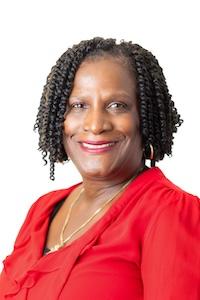This Women’s History Month, We Should Celebrate and Continue Fighting for Change

March, as you know is Women’s History Month. It’s a time to honor the contributions of women and celebrate those who made it possible for women to thrive. But if we embrace this month’s feel-good moments without examining the challenges women still face, we will have missed the mark.
Women’s History Month was born of tragedy. On March 25, 1911, 146 women were killed when the Triangle Shirtwaist Company Factory burned. The fire was largely preventable. Many women would have survived had the company implemented basic safety features. What’s more, it is reported that building owners locked the doors to the facility to prevent union workers from organizing workers. In a desperate attempt to escape the blaze, many women leapt to their death. These women, much like workers today, labored in unsafe conditions. Such conditions disproportionately impact women, immigrants and women of color.
In the same way that the employer resisted safety features, far too many employers today, healthcare companies and otherwise, allow workers to slowly perish rather than implement common-sense reforms that would keep workers and community members alike safe. By implementing appropriate staffing, supporting workers’ right to organize, paying competitive wages, and improving overall working conditions, employers can support women, and by extension, entire communities.
Maximize the Moment
If we do not use this moment to highlight the persistent challenges women face, we will have missed the mark. For instance, March 8 is Equal Women’s Pay Day. It’s the day that women’s earnings caught up to what men earned in 2021. Yes, wage inequity persists. In fact, Pew Charitable Trust found that “In 2020, women earned 84% of what men earned.” And Stanford University found that “Throughout much of the 20th century, the average woman earned about 60% of what the average man earned. Starting in the late 1970s, there was a substantial increase in women’s relative earnings, with women coming to earn about 80% of what men earned.” They note that the gap has remained largely unchanged since 2005.
Disproportionately Impacted
But it’s not just the money. Social injustices have an adverse and disproportionate impact on women. The UN noted that climate change will aggravate women and add to their vulnerability. For instance, women suffer disproportionately due to the climate crisis. Women are more likely to be displaced and more likely to experience gender-based violence when natural disasters and climate emergencies occur. Additionally, 70% of the 1.3 billion people living in poverty are women. “Women represent a high percentage of poor communities that are highly dependent on local natural resources for their livelihood, particularly in rural areas where they shoulder the major responsibility for household water supply and energy for cooking and heating, as well as for food security.” The climate crisis threatens the natural resources that women have come to rely.
This is a moment to celebrate, yes. But it’s also a moment to advocate for the elimination of barriers that complicate the lives of far too many of our sisters, friends, mothers, grandmothers, daughters, aunts and loved ones. For healthcare professionals, one of the most daunting aspects of providing care is understaffing. Understaffing places undue burdens on women and communities, including patients and workers. Short staffing is not a function of chance, but the result of willful choices by hospital administrators. It also wasn’t caused by COVID-19, but instead, COVID-19 exemplified a problem that had long been festering.
Nurses Deserve Better
Karen Lam, RN, described it this way, “We cannot continue to be stretched so thin. Nurses deserve better. Patients deserve better. I am tired of feeling like a bad nurse when in reality, it’s bad working conditions. When you give me all these responsibilities to carry on my back, you then cannot blame me when my back begins to break.”
And this is not about women coming together. Every day, in hospitals and health systems across the country, women come together. Unions are synonymous with solidarity and uniting is a core value for NYSNA. This care and concern for fellow nurses was on full display at a Department of Health (DOH) Public Health and Public Health Planning Committee hearing on January 27 in Albany, New York. When a last-minute switch changed the meeting venue from NYC to Albany, NYSNA members in the Capital Region (including Sandra Baldeo, RN; Jaimie Alaxanian, RN; and Dawn Zipp, RN, for delivering) delivered testimony on behalf of their Long Island member colleagues.
I know that women are often asked to do more with less. Our history indicates that we know how to do this well. But it’s time to stop putting bricks on the back of the people who make this society churn.
This year, employers should not celebrate women if they are not improving working conditions that stress and harm women. They know what to do. It’s time they do it.